Ocean and earth science
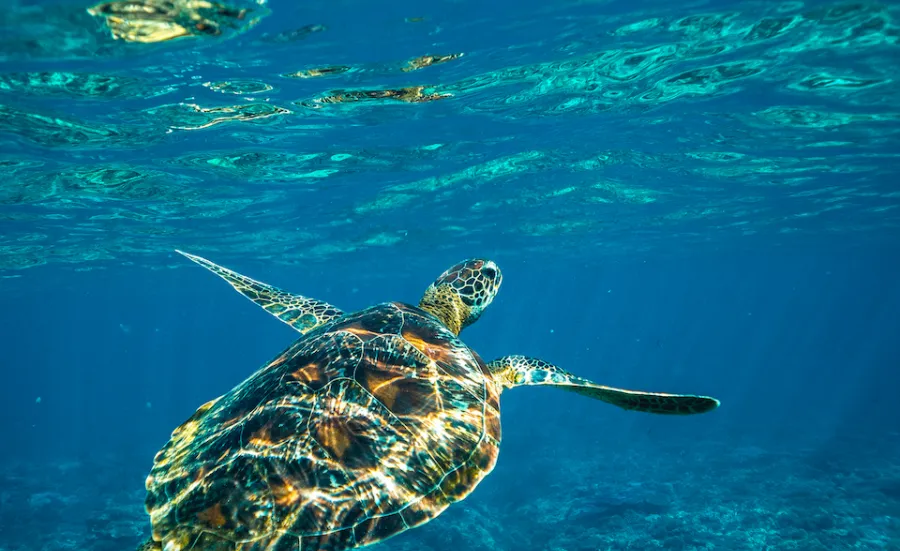
Join our Graduate School of the National Oceanography Centre Southampton (GSNOCS). We're an interdisciplinary research community working on the latest topics in ocean and earth science.

Join our Graduate School of the National Oceanography Centre Southampton (GSNOCS). We're an interdisciplinary research community working on the latest topics in ocean and earth science.

GSNOCS is a centre of excellence. We are large, international, scientifically diverse and genuinely interdisciplinary with over 120 registered PhD supervisors and more than 150 PhD students with backgrounds in:
Find out more about the:
One-to-one contact with practising researchers is the most important component of postgraduate education. We host a large cohort of academic staff at NOCS involved in supervising our PhD students. There are many hundreds more working in related disciplines across the University.
A supervisory team will mentor and guide you in carrying out your research. An advisory panel will monitor your progress and give additional advice.
Our research generally focuses on one of these areas:
You can either apply for a structured studentship or propose your own PhD idea.
Structured studentships are advertised PhD projects with a title, supervisor, remit and funding already in place. These projects are set up through collaborations with industry, external partners or through one of several centres for doctoral training that we take part in.
Taking one of our structured studentships will give you access to additional training, conferences and secondments.
The INSPIRE Doctoral Training Partnership (DTP) offers fully-funded studentships. You can explore these here or visit the INSPIRE website to explore projects for September 2024 entry into the 6th round of INSPIRE recruitment.
Although the deadline for INSPIRE DTP applications has passed, most of these projects will not be filled by INSPIRE students and are likely available if you have an alternative source of funding. If you are interested in an INSPIRE project, please contact the lead supervisors for more information.
Ecosystems are widely impacted by anthropogenic activities, including the release of chemicals. Scyphozoan jellyfish, in particular the common jellyfish Aurelia spp., are widespread in coastal environments subjected to a range of natural and anthropogenic stressors. Their complex life history consists of an annual medusa and perennial polyp. This makes them a valuable model organism to gain a mechanistic understanding of the effects of anthropogenic inputs on distinct life stages of a widely-distributed bentho-pelagic invertebrate.
Sound can be used to understand ocean biophony, geophony and anthropogenic processes and their interactions. This project will acquire novel passive acoustic datasets from a submarine canyon system. Machine learning techniques will be used to isolate and understand different components of the soundscape, with a particular focus on beaked whales.
The ocean is losing its breath. Persistent ocean deoxygenation causes disruptions in the nutrient cycle with devastating consequences for ecosystems, but its future remains unclear. This project will use cutting-edge geochemical proxies and climate simulations to better understand the response of oxygen minimum zones and the knock-on effects on marine biodiversity to climate change.
Coastal flooding is the second largest non-malicious risk to the UK. Accurate coastal forecast information is critical to enabling EA Incident Managers to assess coastal flood risk in real time and take appropriate mitigating actions.
Floods have been identified as one of the most dangerous hazards in the UK causing potentially billions of pounds of economic and social damage per year. Flood risk is becoming an increasing concern as studies suggest that flood frequency and magnitude are changing over time in the UK, with events that would have been rare in the recent past seeming to become less rare now.
Life in the ocean is sustained by nitrogen fixation, a microbial process supplying bioavailable nitrogen. This project will explore biological controls on nitrogen fixation in the Indian Ocean, bridging cell to ocean scale nitrogen fluxes in the least explored basin in the world’s oceans.
Gravel barrier shorelines offer widespread, critically important natural flood protection to many coastal communities. Their management, creation and enhancement are increasingly seen as sustainable, while providing nature-based adaptation options that boost natural capital. But these assets must be well managed to ensure they continue serving such functions in the face of increased risk of coastal erosion and flooding.
Tropical predators are becoming established within temperate communities as a response to climate warming (tropicalisation), but with unknown consequences. This project will use an interdisciplinary approach to understand the eco-evolutionary impacts of altered predator-prey interactions of marine species and communities undergoing tropicalisation while helping to inform management strategies.
Coral communities in the Galápagos Archipelago survive under extreme conditions in the Eastern Pacific. Their persistence has been repeatedly threatened by a combination of climate-driven and anthropogenic disturbances. This project will take an integrative ecological and oceanographic modelling research approach to explore potential conservation opportunities for these unique ecosystems
Subduction zone volcanoes are notoriously dangerous and unpredictable. But did they behave differently when they were young? Here, pre-eruptive magmatic processes and timescales of a rare, young stratovolcano (Bagana, PNG) will be compared to an old stratovolcano (Etna) to explore how eruption size, style and timescales change as volcanoes age.
Marine ecosystems are under urgent threat from ocean warming, deoxygenation and acidification today. Earth has warmed (and cooled) many times before, with sustained warm periods that resemble worst-case-scenario predictions for modern climate change. In this project you will investigate the impacts of these climate extremes on marine ecosystems.
The project aims to use and combine the latest techniques in seismology, structural geology, and geodesy to understand interaction of geological faults and volatile phase fluids in space and time during active extension of continents. The research will target the Corinth rift of Greece, where earthquakes are a significant hazard.
Sea urchins and the echinoderms more broadly probably biomineralise as much calcium carbonate as coral reefs, although they have received a fraction of the attention. This project will investigate the biomineralisation process of these organisms and determine the extent to which echinoderms drive, as well as respond to, environmental change
The goal of the FUTURESCAPES project is to develop a range of plausible global scenarios, broader than currently exists, for future land-use change arising from interactions between climate extremes and technological and social innovations, to increase our understanding of global future risks and opportunities.
Recent work has highlighted the importance of turbulent mixing in the ocean bottom boundary layer in upwelling the dense waters formed at high latitudes. This project will use cutting-edge sensors, including optical fibres along the seafloor, to provide a new window on near-bottom ocean turbulence.
Climate change has focused attention onto whether atmospheric carbon dioxide concentrations may be lowered by direct intervention. Sinking marine macroalgae to the sea-floor is one suggested approach to increase ocean carbon storage. But what are the consequences for the seafloor organisms when all this material is deposited?
This project will use numerical modelling tools to investigate the impact of grounded icebergs on the physical oceanography of the South Georgia (Southern Ocean) shelf and explore the consequences for the transport of Antarctic krill, a key prey item for local colonies of higher predators.
UK coastal habitats such as seagrasses provide critical ecosystem services for human well-being and biodiversity. This project, in collaboration with Natural England, will quantify the multiple impacts of climate change, human activities, and biological interactions on these habitats to support their protection, sustainable management, and restoration.
The magnitude of future warming will depend upon the strength of carbon cycle feedback mechanisms. However, there are carbon cycle feedbacks that we still know little about. This PhD project will test whether CO2 release from sedimentary rocks is a missing carbon cycle feedback in past and future warm climates.
The upper ocean has warmed by ~1°C since pre-industrial times. However, sea surface temperature measurements before the 1980s carry considerable uncertainty. The aim of this project is to reduce that uncertainty by using the composition of coral skeletons to provide an independent ocean temperature record over the last 150 years.
Ocean robots (sensors and vehicles) can offer the spatial and temporal coverage required to observe ocean acidification and the rapidly changing carbon cycle. Using the latest in autonomous technologies, this project will develop, demonstrate and prove the impact of high-resolution carbon observations through a series of trials around the globe.
Global warming leads to sea-ice melting in polar oceans, increasing light penetration, enhancing phytoplankton blooms and consuming nitrogen. If warming continues, it is unclear which nitrogen sources will support life in polar oceans. Combining isotopes and bioinformatics we will investigate nitrogen fixation as a new source of nutrients.
Almost all marine life depends (either directly or indirectly) on the rate of phytoplankton growth using sunlight, nutrients and carbon (i.e. the rate of primary production). It also impacts atmospheric oxygen and carbon dioxide. This project will produce new, improved estimates of oceanic primary production through time.
What can the fossil record of coral reefs tell us about ecosystem futures as our climate changes? This project will use quantitative palaeoecology to characterize coral reef ecosystem collapse, resilience, and recovery dynamics during Phanerozoic mass extinctions to understand the long-term future of reef-hosted biodiversity.
Shifting rainfall patterns and seasons represent an alarming consequence of human-driven global climate change. Yet even the sign (wetter/drier) of future change is uncertain in some regions. This project examines the response of continental climates to global warmth in the past to study natural forcing and evaluate uncertain future predictions.
Polar amplification where enhanced warming in polar regions outpaces global temperature change is poorly understood. Using geological evidence, climate models and theory, this project will explore why past polar amplification sometimes affects the Arctic, sometimes the Antarctic and sometimes both poles. Projections of polar amplification for future climate change will be made.
This project explores coastal transformations along the south coast of England linked to the combined impacts of storms, waves, and rising sea levels. The south coast is highly vulnerable to climate change because of its exposure to powerful weather systems originating from the North Atlantic.
This project will characterise the impacts of Sargassum degradation on deep-sea biogeochemical processes and determine the fate of products released into the environment to help evaluate the potential efficacy and effects of seaweed deposition as a marine Carbon Dioxide Removal (mCDR) technique.
There are over 350,000 synthetic chemicals in production many with no environmental risk assessment for tropical fish species. The project aims to address the paucity in information by identifying chemicals of concern, which coral reef fishes are most vulnerable and how chemicals impact on organism behaviour and physiology.
The Atlantic Meridional Overturning Circulation (AMOC) plays a critical role in decadal climate variability with impacts on sea level, regional weather patterns, and thus flooding, which poses a significant hazard to coastal infrastructure, including the UK’s Nuclear Power Plants. The overall goal of this project is to address fundamental questions about the causes and consequences of flooding around the UK’s coastlines over the next 100 years.
This project will use observations from autonomous platforms and an observationally constrained model to investigate the processes controlling the lifecycle, biogeochemical function and climatic sensitivities of Winter Water – an upper-ocean water mass that plays a key role in the Southern Ocean overturning circulation and carbon cycle.
Globally soft coastlines represent major regions of population and biodiversity. They are under threat from rapid environmental and population growth. This research will combine long (600yr) sources of evidence found in documentary and sediment archives to fully understand how climate change – mediated via storm and surge driven flooding resulted in change to the physical, ecological and socio-economics and community response of soft coastal systems.
You can either apply for a structured PhD or propose your own research project idea.
Taking a structured PhD will give you access to additional training, conferences and secondments.
We offer our structured studentships in partnership with Inspire Natural and Environmental Research Council (NERC) and the South Coast Doctoral Training Partnership (SCDTP).
We offer a wide range of fully-funded studentships. We run most of our PhD studentships in partnership with doctoral training centres, meaning you’ll benefit from enhanced training and guaranteed funding.
These studentships:
Find out about the Inspire doctoral training partnership offering fully-funded studentships.
The University of Southampton supports (in conjunction with other funders) additional fully-funded studentships.
These are associated with some projects carried out in collaboration with a non-academic partner. Students get a top-up to their research training support grant (RTSG) of £1,000 or £2,000 a year.
GSNOCS has a limited number of international student scholarships, available for highly qualified non-UK/EU applicants to help cover the cost of student fees.
You must identify the project(s) you're interested in, and we recommend you contact the relevant supervisors before you apply.
Get in touch with the GSNOCS office team at gsnocs@soton.ac.uk
Once you've found a supervisor, they can help you with potential funding sources. We offer match funding in some cases.
You'll need to state how you intend to pay for your tuition fees when you submit your application.
Find out more about funding your PhD
You can borrow up to £29,390 for a PhD starting on or after 1 August 2024. Doctoral loans are not means tested and you can decide how much you want to borrow.
Find out about PhD loans on GOV.UK
You may be able to win funding from one or more charities to help fund your PhD.
2023 to 2024 entry:
| PhD | UK | International |
|---|---|---|
| Full time | tbc | £25,500 |
| Part time | tbc | £12,750 |
2024 to 2025 entry:
| PhD | UK | International |
|---|---|---|
| Full time | £4,786 | £26,100 |
| Part time | £2,393 | £13,050 |
| Ocean and Earth Science Distance Learning Part-time | £2,393 | £13,050 |
2025 to 2026 entry:
| PhD | UK | International |
|---|---|---|
| Full time | tbc | £26,700 |
| Part time | tbc | £13,350 |
| Ocean and Earth Science Distance Learning Part-time | tbc | £13,350 |
You're eligible for a 10% alumni discount on a self-funded PhD if you're a current student of graduate from the University of Southampton.
It's a good idea to contact a relevant supervisor about the project or research you're interested in, before you apply.
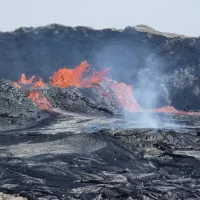
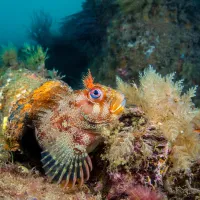
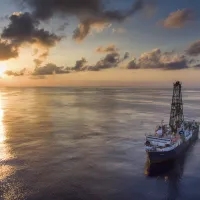
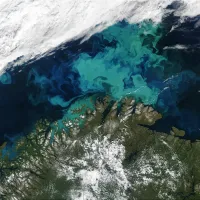
Decide whether to apply to an advertised research project or create your own proposal.
It's a good idea to email potential supervisors to discuss the specifics of your project. It's best to do this well ahead of the application deadline.
You’ll find supervisors’ contact details listed with the advertised project, or you can search for supervisors in the staff directory.
You’ll need to send us:
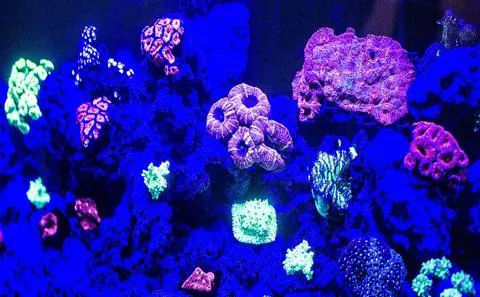

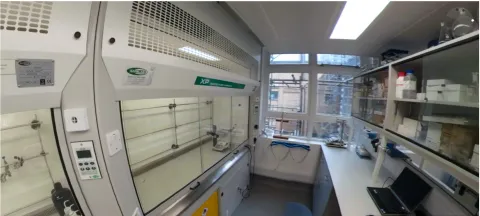
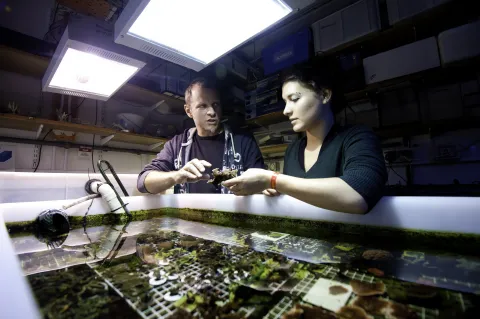
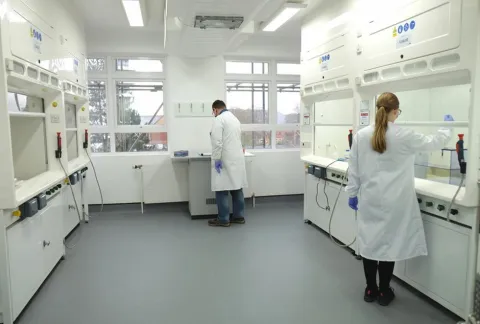
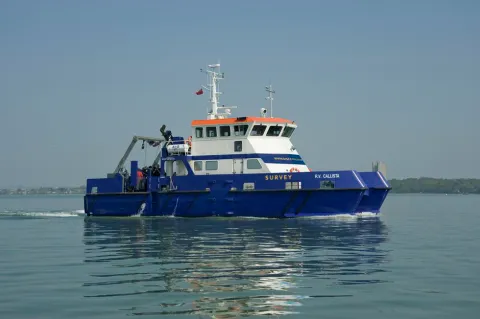
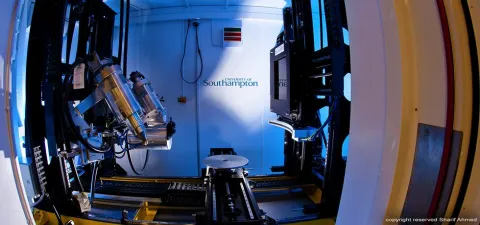
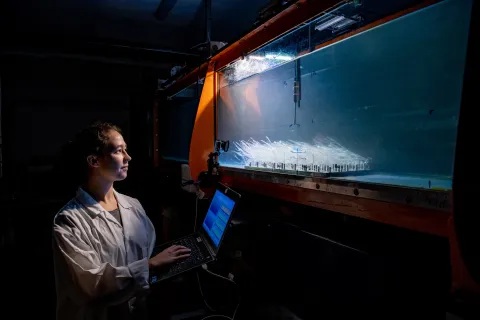
You’ll need to have a 2:1 undergraduate honours degree, or equivalent qualification, in an appropriate subject.
If English is not your first language, you'll need an IELTS minimum level of 6.5 with a 6.0 in writing, reading, speaking and listening.
Your awarded certificate needs to be dated within the last 2 years.
If you need further English language tuition before starting your degree, you can apply for one of our pre-sessional English language courses.
Check the specific entry requirements listed on the project you’re interested in before you apply.
Research degrees have a minimum and maximum duration, known as the candidature. Your candidature ends when you submit your thesis.
Most candidatures are longer than the minimum period.
| Degree type | Duration |
| Ocean and Earth science PhD full time | 2 to 4 years |
| Ocean and Earth science PhD part time | 3 to 7 years |